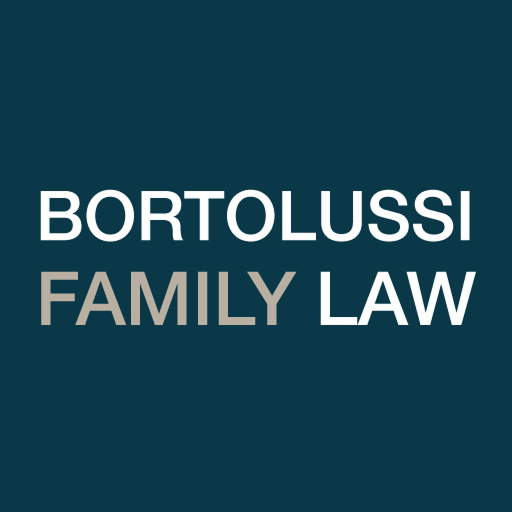Supreme Court of Canada: Mediated Settlements Are Evidence In Court

In a decision that may have far-reaching consequences on the way in which separating couples participate in alternate dispute resolution processes in the future, the Supreme Court of Canada dismissed an appeal by the Association de mediation familiale in a family law case, where the parties’ mediated settlement was considered as evidence in the subsequent court proceedings.
In short, the Supreme Court of Canada decided that confidentiality in the mediation process is not absolute, and parties who reach an agreement there cannot later deny the existence of a settlement reached during mediation.
COMMON LAW COUPLE SEPARATES
The original parties involved, a common-law couple with two children, separated in 2012 after a relationship of more than three years. Mediation ensued, the parties met with a certified mediator to try to resolve issues relating to the jointly owned family home as well as care and support relating to their children. At the conclusion of the process, the mediator drew up a summary of the agreements that the parties had reached in the mediation.
Bouvier subsequently paid, and Bisaillon cashed, three cheques, two of which referenced “mediation.” Their post-mediation communications initially referenced an agreement that they had reached during mediation. In later email exchanges, Bisaillon denied that the parties had reached any such agreement.
Bisaillon started court proceedings, seeking an equal share of the family home. Bouvier defended, taking the position that the parties had reached a transactional agreement in the mediation process that dealt with the division of this asset. Bisaillon argued that the confidentiality of the mediation process precluded the court from considering any such agreement. She also alleged that no binding agreement had ever been reached.
EXPECTATIONS OF PRIVACY IN MEDIATION PROCESS
At the Superior Court level, a review of the documents that the parties had signed in order to enter into the mediation process occurred. Relevant to the parties’ understanding of the confidentiality of the process was this term:
We acknowledge that the content of our meetings, of the interviews and of our file is confidential. We commit ourselves to not use as proof in front of a court any document contained in the file, including the Summary of Mediated Agreements, without the consent of both parties. The mediator cannot communicate this information to anyone except when the law expressly orders it.
It was found that the parties’ communications acknowledging the mediated agreement, as well as Bisaillon’s cashing of the cheques, constituted a waiver of any interest either had in keeping the existence of the agreement itself (not necessarily its terms) confidential. The judge also found that the mediation summary, not the mediated agreement itself, was something that the court was entitled to review in deciding whether or not an agreement existed at all. This was the finding of the Court of Appeal as well, notwithstanding the parties’ understanding of the confidential nature of the mediation process.
Bisaillon was unsuccessful in her bid to deny that the parties had reached an agreement during mediation. The Association was permitted to step in to take the decision to Canada’s highest court because of the importance of the issue to families, mediators, and lawyers alike. The questions that needed answers:
- Are family mediations completely private in every way?
- If not, where does the law draw the line?
EXCEPTIONS TO SETTLEMENT PRIVILEGE
Interestingly, a 2014 commercial decision of the Supreme Court of Canada, Union Carbide Canada Inc. v. Bombardier Inc. was applied in the family law context in the Association’s appeal. The concept of the “settlement exception” was born when the Court in Union Carbide held that, despite the importance of ensuring that conversations taking place in the process of mediation were confidential as a way to encourage openness and cooperation, the existence of a settlement itself was not a matter subject to absolute confidentiality.
In the appeal by the Association in the Bisaillon c. Bouvier case, the court acknowledged that family law cases are different from commercial cases in a fundamental way, based on the fact that the litigants are often going through difficult personal circumstances at the time, leaving them vulnerable in many ways. It is for this reason that mediators take such pains to ensure that the parties know what the process is all about, and understand their rights and duties, in particular, their rights to rely on the confidential nature of the process.
Nonetheless, the Supreme Court decided that the “settlement exception” from Union Carbide was applicable. The court noted the other important safeguards for the rights of vulnerable parties built into the family mediation process, such as the professional responsibilities of certified mediators chosen by the parties. In the end, the court found it important that the purpose of family mediation not be undermined by applying a rule of “absolute confidentiality”:
Excluding the settlement exception in favour of absolute confidentiality once a dispute has been resolved could prevent a spouse from asserting their rights against a spouse acting in bad faith. It must be remembered that parties have a duty to participate in the mediation process in good faith… and absolute confidentiality could impede a spouse’s ability to raise the bad faith of the other spouse where the latter, capitalizing on this airtight confidentiality, is dishonest about their own position taken during mediation…
Above all, it must be kept in mind that the settlement exception may be essential for a vulnerable spouse who has been able to negotiate a fair agreement and would like to prove it, and that absolute confidentiality could undermine the protection of that spouse if the other took advantage of the power imbalance and denied the agreement.
SIGN THE BOTTOM LINE, OR NOT?
One of the interesting facts to remember about this case is that the parties never signed the summary of mediated agreements. It was their subsequent acknowledgement of the existence of an agreement, through their communications and their behaviours, which allowed the court to dig deeper into the issue. It might come as a surprise to some that a signature is not the only way to make a contract binding.
CONTACT VAUGHAN FAMILY LAWYERS FOR COMMON LAW SEPARATION AND ALTERNATIVE DISPUTE RESOLUTION
For parties experiencing the upheaval of family separation, divorce or any family law dispute, a consultation with Bortolussi Family Law takes the guesswork away. Our lawyers are a team skilled at representing clients’ common-law couples and the mediation process. Parties can contact our firm for representation, or to retain Lorraine A. Bortolussi, accredited family mediator, to work with them through the mediation process. Call us at 416-987-3300 or contact us on our website.
